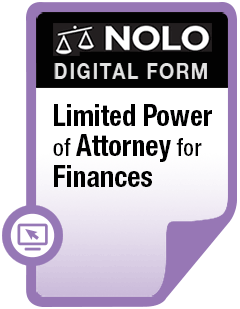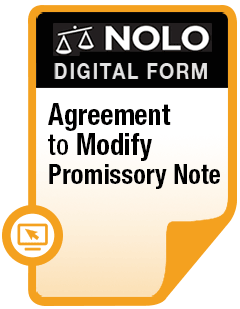If you're looking at timeshares in Mexico, learn how to protect yourself.
If you buy a timeshare in Mexico, U.S. laws don't apply to the transaction. Even if your home state strictly regulates timeshare sales, those state statutes won't apply if you buy a timeshare in another country. Instead, you'll be subject to that country's laws.
So, if you're looking at timeshares in Mexico, you should learn the applicable laws and consider several different issues. For starters, even though Mexican law protects timeshare purchasers by providing the right to cancel a timeshare contract, it might be difficult to enforce this right.
Also, timeshare scams abound in Mexico, and you should take steps to avoid becoming a victim.
- What Is a Timeshare and How Do They Work in Mexico?
- What Are Your Rights as a Timeshare Buyer in Mexico?
- What Are the Most Common Scams Associated With Mexico Timeshares?
- Tips When Looking at Mexico Timeshares
- Beware of Timeshare Resale Scams, Too
- Why It Is Important to Consult a Legal Professional Before Buying
What Is a Timeshare and How Do They Work in Mexico?
In Mexico, foreigners are restricted from owning land within 50 kilometers of the coast or 100 kilometers of an international border. (Foreigners can hold land in these areas through "fideicomisos," which are bank trust agreements, or through a Mexican corporation. This type of arrangement can be complicated. Consult with a lawyer in Mexico for more information.)
Types of Timeshares Available in Mexico
The majority of timeshares in Mexico are in beach resorts in places like Mazatlan, Los Cabos, Cancun, Cozumel, and Puerto Vallarta. So, in most cases, when you buy a timeshare in Mexico, you're only purchasing a right to use the timeshare rather than an interest in the real estate. (In the United States, the two main types of timeshare interests are deeded and right to use.)
Generally, with Mexican timeshares, you'll receive the right to use one or more units for a specific number of weeks during a certain number of years. You will have to pay an initial purchase price and periodic maintenance fees, which are likely to go up each year.
What Are Your Rights as a Timeshare Buyer in Mexico?
By law, in Mexico, you have five business days to cancel a timeshare contract after you've signed it. The sooner you act, the better.
Also, be aware that this right to cancel can't be waived. If you try to cancel, some timeshare salespeople might tell you that you waived this right when you signed the contract, which isn't true.
Mexican law stipulates that purchasers are legally entitled to cancel a timeshare contract without penalty.
How to Cancel a Timeshare Contract in Mexico
To cancel the contract, notify the developer in writing. It's also a good idea to send a cancellation notification by email, as well as in person, if possible. Be sure to:
- follow the instructions provided in the contract on how to cancel
- deliver the cancellation within the rescission period
- keep a copy of the cancellation notice, and
- get proof of the delivery of the cancellation notice, such as receipts, video/audio recordings of your attempt to cancel, etc.
Getting a Refund for a Mexico Timeshare Purchase
The timeshare developer must refund all the money you have paid, without any penalties for canceling, within 15 business days.
You Might Have Trouble Enforcing Your Cancellation Right
Often, however, timeshare developers in Mexico are very reluctant to provide refunds. If the developer stalls or refuses to give you a refund, you can file a formal complaint against the company with PROFECO. You might also want to consult with a local attorney to find out how to enforce your rights.
What Are the Most Common Scams Associated With Mexico Timeshares?
Timeshare developers often hire aggressive salespeople, and thousands of foreigners have fallen for the tricky sales tactics used by numerous timeshare companies in Mexico. If you're thinking of attending a timeshare presentation or purchasing a timeshare in Mexico, it's important to learn how to avoid becoming the victim of a timeshare scam.
Here are some red flags to watch out for.
Be Wary of Free Gifts With No Strings Attached
If someone approaches you during your vacation and invites you to a complimentary breakfast or offers a free stay at a resort, beware. That person might want to sell you a timeshare.
Mexican law prohibits timeshare salespeople from offering gifts, free vacation certificates, or any other promotion strategies without informing the consumer of the specific purpose of the offer. However, this prohibition doesn't stop salespeople from using this tactic.
Don't Purchase a Timeshare Based on the Brochure
If the salesperson only shows you a brochure of the timeshare property—but not the property itself—run away from the deal. There's very likely some problem with the resort. It's probably in disrepair, or maybe it hasn't even been built yet.
You need to visit the resort and the developer's office before you even consider purchasing a timeshare.
Tips When Looking at Mexico Timeshares
If you're looking to buy a timeshare in Mexico, here are a few tips to keep in mind, such as verifying the legitimacy of the timeshare seller, carefully reviewing any contract, and not succumbing to high-pressure sales tactics.
How Can You Verify the Legitimacy of a Timeshare Seller?
First, do your homework—research the resort, read reviews, and make sure it has a good reputation. Before you purchase a timeshare at a particular resort, run a search on the internet to find out more about the company that you're dealing with. Timeshare owners who have previously been scammed often post their experiences and warnings about scammers online.
You can also check for complaints about the resort developer at any PROFECO office.
What Should You Look for in a Timeshare Contract?
Review the contract and documents you receive carefully. It's best to go over the paperwork with an attorney.
In the contract, you'll want to look for:
- information about your right to cancel, including the process and any penalties involved
- the total cost, including the purchase price, maintenance fees, taxes, and any additional charges
- the exact dates and duration of your timeshare usage
- any clauses related to your rights to rent, exchange, or sell the timeshare, and
- information about the resort's obligations regarding property maintenance and management to ensure your investment remains in good condition.
Certainly, don't sign any documents that are in Spanish only. Even if you're fluent in the language, you might not understand all the legal terminology. If the timeshare salesperson has provided you with a "translation" of the contract, it might not be correct or accurate, so get it translated elsewhere.
Visit the Resort
Be sure to visit the property. Again, brochures and photos can be deceiving, so seeing the resort in person is a good idea.
Get Any Promises in Writing
If any promises were made during the sales presentation, make sure those promises are covered in the contract.
Watch Out for High-Pressure Sales Tactics
Don't sign a contract when you first meet with a timeshare salesperson. Be wary of high-pressure sales tactics. Take the documents with you when you leave the meeting so you can spend some time reading the fine print. Then, take your time when thinking things over.
Know What You'll Pay and Resale Value
Also, understand all the costs involved, including maintenance fees, taxes, and any other hidden expenses. Lastly, consider the timeshare's resale value—many timeshares don't appreciate in value.
Beware of Timeshare Resale Scams, Too
If you bought a timeshare in Mexico and want to sell it, watch out for scams.
Common Timeshare Resale Scam #1
One common scam involves stealing the identity of an attorney in the United States or Mexico and using that person's identity to offer help in selling the timeshare—for a substantial fee. The scammers might provide documents with names of companies, brokers, and attorneys that appear legitimate.
But the scammers just steal the identities of real attorneys and set up bogus websites under the attorneys' names. The real lawyer isn't involved, and the scammers disappear with the timeshare owner's money.
To avoid this kind of scam, always verify that you're dealing with a legitimate, licensed attorney. For attorneys licensed in the United States, you can find an attorney's true contact information from the state bar association or state office of attorney regulation.
Common Timeshare Resale Scam #2
In another common scam, a potential "buyer" calls you and offers to purchase your timeshare for, say, double what you paid. The supposed buyer (or the buyer's representative) might not ask for an upfront fee, but you'll have to pay "tax fees" (such as a "Mexican federal tax" or "Mexico state tax"), "insurance premiums," "gains taxes," "customs fees," or something similar—but bogus—to get the deal to go through. Someone might call you to say that stating that if you don't pay the tax or fee, they'll put a lien on your resort so you can't use your time there (which is not true). Fees will keep popping up for various hurdles that supposedly need to be overcome before you get paid.
As long as you pay these fees, the scammer strings you along, maybe telling you that you'll get reimbursed. But no buyer exists, and you won't recoup your money. This scam might also involve fake lawyers and documents.
More Scams
If you fall for a scam like these, even if you eventually figure it out, the scammers might later take a different approach. You might get a call from the "police" saying your information was found in the raid of a scammer call center. Or the caller might say they're part of a law firm that's filing a class action suit against the company that scammed you. The caller will say you can recover your money (and maybe more in damages) if you pay them certain fees, like clerk fees, court taxes, printing fees, court fees, docket fees, and government fees. But these are just more scams.
Also, beware of any caller that says you're under investigation for money laundering because you sent money to Mexico after being scammed and that you must pay a fine or fee to clear up the issue. This is yet another scam.
Check Online If You Think You're Being Scammed
New timeshare scams seem to arise all the time. Check online to see what other people have gone through to make sure you don't get similarly taken. The Federal Trade Commission website is a good place to start, and be sure to read the comments people post. And, as always, any scam that seems too good to be true or that demands you make some sort of payment urgently is most likely a scam.
If you've been scammed, you can file a complaint with the Internet Crime Complaint Center. You might get a response, but you probably won't get your money back. If the scammer is in the United States, you can report the person and company to the FTC at FTC.gov/complaint, and the state Attorney General's office.
Why It Is Important to Consult a Legal Professional Before Buying
If you're thinking of purchasing a timeshare in Mexico, it's always a good idea to have a legal professional review the contract before you sign it. If you've already done so, consider hiring competent legal counsel as soon as possible to advise you of your rights and responsibilities in the transaction.
Talk to a Lawyer
Need a lawyer? Start here.
How it Works
- Briefly tell us about your case
- Provide your contact information
- Choose attorneys to contact you
- What Is a Timeshare and How Do They Work in Mexico?
- What Are Your Rights as a Timeshare Buyer in Mexico?
- What Are the Most Common Scams Associated With Mexico Timeshares?
- Tips When Looking at Mexico Timeshares
- Beware of Timeshare Resale Scams, Too
- Why It Is Important to Consult a Legal Professional Before Buying
- Briefly tell us about your case
- Provide your contact information
- Choose attorneys to contact you



